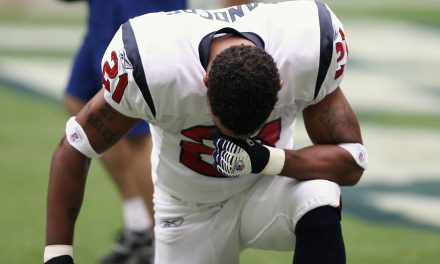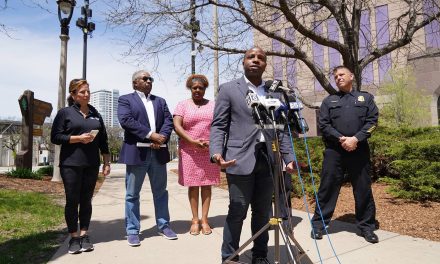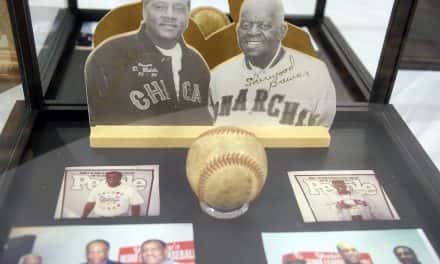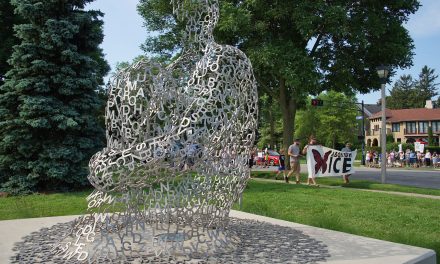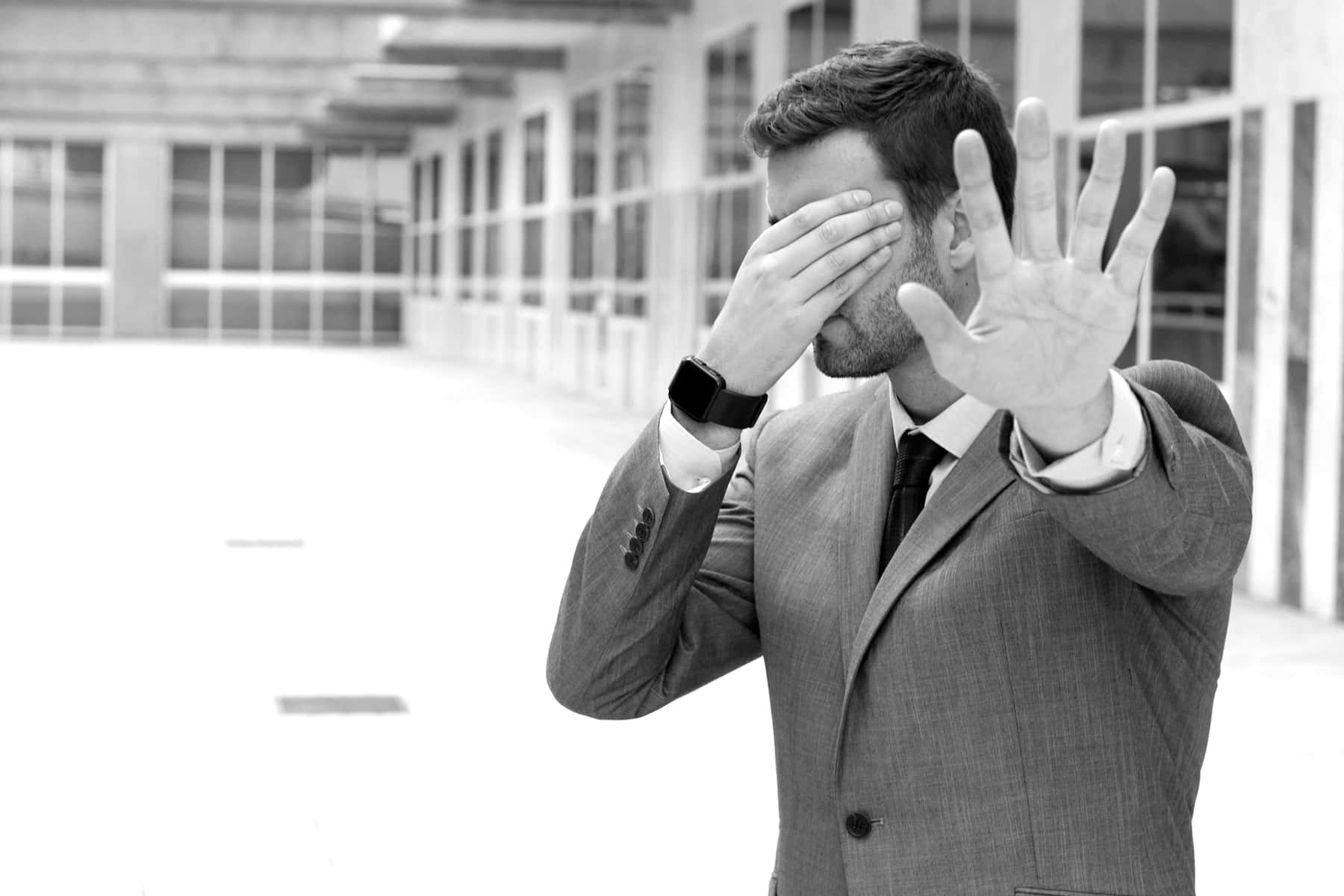
Let me begin by saying this to you. I’m told that you are afraid to talk about race and racism. I’m told that you feel blamed too much in these conversations. I’m told that you fear being called racist in these spaces. I’m told that you are guilted too much in this space. And, I’m told that you feel you are not included in “diversity” conversations.
I hear a lot from other people on a second or third hand level, but I rarely hear your own perspectives. I would love you to understand clearly that you are not a homogenous group. You come from multiple lived experiences and backgrounds. I don’t want to have you all lumped together. It’s unfair to do that.
My personal experiences and national survey data show that members of the group we lump you in, are the least likely people to voluntarily attend these types of trainings and programs.
I’d like to share a personal experience with you. A couple of years ago I was doing a portion of a training in Texas where I talked about unconscious bias. I began by discussing America’s aversion to diversity by giving examples of how Irish men were portrayed in the 19th century as apes in newspapers and magazines across the country. I followed that up with images from the early 20th century where Italian men were portrayed as common, natural-born criminals in newspapers and magazines in the U.S.
I went on to discuss bias related to gender, race and other things. There was one White man in the training session. He sat all the way in the back, and showed defensive body language the whole time. After the program he came up to me to to talk. He was very angry. He told me he felt that as a White man he was left out of the conversation.
I asked him if he recalled that I started the presentation talking about Irish and Italian men. He said “I didn’t notice.” It was clear to me that his mind was closed from the beginning until the end of my portion of the training. He came into the session with assumptions about what he would hear. He just knew that I would automatically bash White men.
I think this is a common assumption which keeps White men from hearing, learning and listening when race comes up.
Let’s examine some things that make you feel this way. Many of the things you hear about the work of racial justice, diversity, inclusion and equity trainings and talks use the historical lens to show what the experiences of people of color have been. No study of American history is complete without seeing the role that White people have played as agents and arbiters of the lived experiences of people of color.
It’s not just about slavery and Jim Crow. Every slice of the American pie includes Whites. To ignore the role that Whites, particularly White men, have played in American history makes no sense. No one has a problem pointing out the positives that White people have contributed to building this nation.
It becomes problematic when the ugly parts are shared with honesty and details. I can see why there would be some guilt built into the emotions attached to learning those things. It’s unavoidable. As people used to say, “If you make the bed, sleep in it.”
So it will take a great deal of courage to go against what you’ve been taught about this nation’s history to analyze the ugly parts. You’ve heard your entire life about America standing for liberty, justice and the pursuit of happiness. All the while you’ve known that’s not really an honest interpretation of American history.
You know about the land being taken from Native Americans. It’s obvious they did not just give it away. All of us know this, but some people are unwilling to admit to that.
Everyone knows millions of Africans and their children were enslaved in this country. You might be surprised to learn it lasted 246 years, but you know it existed. You also know that White people were never held in chattel slavery in this country. You know that the slaveholders were almost always White people. These things are not in dispute. What many White people question, is the extent of the bad treatment of Black people.
You were taught in American schools that slavery wasn’t so bad. You were taught that Lincoln gave them their freedom and they squandered it. You were probably not taught much about Black people from the passage of the 13th Amendment in 1865 until the Brown decision in 1954 and the Rosa Parks arrest in 1955.
That is not your fault. Most American schools did not teach anything about the horrors of Jim Crow. You did not learn about lynchings in your formal education. No one included massive anti-black race riots, perpetrated by White people like what took place in Tulsa in 1921. It is something you never heard of until adulthood, if at all. The Tuskegee Syphilis Experiment was left out of your history lessons. Mine too.
All you heard was the success of Whites who came and pulled themselves up by the bootstraps. You heard about the Thomas Edison’s, Alexander Graham Bell’s and Henry Ford’s of the world. You heard about the Pilgrims and the millions of Whites who “opened” up the West. You watched the conquering heroes in the John Wayne movies. You saw the positive sides of America. The other side of the coin was never shown. As a result, you can’t now believe the things people say about White men and racism.
Believe me I get it. I understand how hard it is to give you an alternative view of this country that is the polar opposite of what you’ve always believed. All along the way, in the good, the bad and the ugly parts of American history the main players have been White people. You’ve been taught to see just those good parts and attribute those to a Protestant work ethic. You were never told the positive contributions of people of color.
America has taught you that Native Americans were “savages” wasting the land and that God ordained Europeans to have it as part of what you know as “manifest destiny.” You were taught that Black people were lazy because they saw no reason to work really extra hard for no pay. Well at least you were taught that first part about them being lazy.
I know what you were taught in school because I got the same version you did. I watched the same “Cowboys and Indians” movies you watched. I saw the cop shows with kind, professionals who “protect and serve” and never beat up or killed innocent people. I watched the same Tarzan movies you watched. I saw White people portrayed as members of loving families on Leave It to Beaver, and The Waltons. I saw the way Black people were almost always portrayed as criminals, pimps, hookers, rapists, druggies, and such.
We’ve all been exposed to the same images and videos our entire lives. We all get constant, consistent reinforcement of the positive images of Whites and negative depictions of everybody else.
Just like you, I wanted to be like Batman, Superman, Spiderman, Captain America and the many other “superheroes,” even though none of them looked like me. Why would I not want the same things you wanted?
When we close our eyes and think of successful Americans we see mostly White people. All 46 U.S. Presidents have been White men with the exception of one who was a half-white man. The giants of American business like Henry Ford, John Rockefeller, Sam Walton, Jeff Bezos, and Steve Jobs have all been White. Even the most famous White criminals, who Americans fawned over were all White: Al Capone, Bonnie and Clyde, Pretty Boy Floyd, John Dillinger, the Unabomber, and such.
The winningest basketball and football coaches have usually been White. You can conveniently ignore that Adolph Rupp and John Wooden did not have to worry about Black coaches competing for those same jobs back then. The great Babe Ruth never played against Black men in the major leagues. Ben Hogan, Jack Nicholas and Arnold Palmer never competed against Blacks at the “Masters” tournament until Lee Elder played in 1975.
Are you beginning to see a pattern of an un-level playing field? Can you find it in your hearts, and more importantly in your minds, to see how White men can be held liable for some of the difficult life experiences of people of color? The same way you can see the positive contributions, you need to acknowledge that White people made decisions to keep Black people out of White neighborhoods, White banks, White sports teams, White colleges and universities, White labor unions, White bathrooms, White restaurants, White hotels and White jobs.
If you have it within you to see and acknowledge these things — and I known many of you might not—then you can stand the discomfort of hearing about these bad deeds. It’s not about you as individuals. You don’t need to carry the weight of the guilt of all that your predecessors did or of what some of your peers do today. Leave that baggage behind when you come into the diversity, equity and inclusion spaces.
If you follow this advice, you won’t need to feel uncomfortable, and defensive. You will not be who the trainers are talking about. You might belong to the same group they mention, but it’s not on you to be the White man who represents every White man in the country’s history. It does not matter if you are concerned that someone might be talking about your great, great grandfather the slaveholder. That was him, not you.
Every time a White man commits a racist act, you don’t need to feel guilty about it. It wasn’t you. Unless it was you. No one is perfect.

